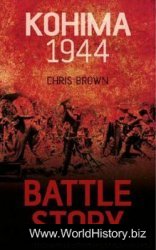Superficially the governments of the Middle Colonies closely resembled those of earlier settlements. All had popularly elected representative assemblies, and most white male adults could vote. In Pennsylvania, where Penn had insisted that there be no religious test and where fifty acres constituted a freehold, something close to white universal manhood suffrage existed. In New York even non-property-holding white male residents voted in local elections, and rural tenants with lifetime leases enjoyed full voting rights.
In Pennsylvania and most of New York, representatives were elected by counties. In this way they resembled Virginia and Maryland. But unlike the Southerners, voters did not tend to defer in politics to the landed gentry. In New York, in 1689, during the political vacuum following the abdication of King James II, Jacob Leisler, a disgruntled merchant and militia captain, seized control of the government. Leisler’s Rebellion did not amount to much. He held power for less than two years before he was overthrown and sent to the gallows. Yet for two decades New York politics continued to be a struggle between the Leislerians, and other selfconscious “outs” who shared Leisler’s dislike of English rule, and anti-Leislerians, who had in common only that they had opposed his takeover. Each group sought the support of a succession of ineffective governors, and the one that failed to get it invariably proceeded to make that poor man’s tenure as miserable as possible.
New York enjoyed political tranquility during the governorship of Robert Hunter (1710-1719), but in the early 1730s conflict broke out over a claim for back salary by Governor William Cosby. When Lewis Morris, the chief justice of the supreme court, opposed Cosby’s claim, the governor replaced him. Morris and his assembly allies responded by establishing the New York Weekly Journal. To edit the paper they hired an itinerant German printer, John Peter Zenger.
Governor Cosby might have tolerated the WeeklyJournafs front-page lectures on the right of the people to criticize their rulers had the back pages not contained advertisements referring to his supporters as spaniels and to him as a monkey. After submitting to two months of “open and implacable malice against me,” he shut down the paper, arrested Zenger, and charged him with seditious libel.
What began as a squalid salary dispute became one of the most celebrated tests of freedom of the press in the history of journalism. At the trial Zenger’s attorney, Andrew Hamilton, argued that the truth of his client’s criticisms of Cosby constituted a proper defense against seditious libel. This reasoning (though contrary to English law at the time) persuaded the jury to acquit Zenger.
Politics in Pennsylvania spurred conflict between two interest groups, one clustered around the proprietor, the other around the assembly, which was controlled by a coalition of Quaker representatives from Philadelphia and the German-speaking Pennsylvania Dutch.
Neither the proprietary party nor the Quaker party qualifies as a political party in the modern sense of being organized and maintained for the purpose of winning elections. Nor can they be categorized as standing for “democratic” or “aristocratic” interests. But their existence guaranteed that the political leaders had to take popular opinion into account. Moreover, having once appealed to public opinion, they had to be prepared to defer to it. Success turned as much on knowing how to follow as on knowing how to lead.
The 1763 uprising of the “Paxton Boys” of western Pennsylvania put this policy to a full test. The uprising was triggered by eastern indifference to Indian attacks on the frontier—an indifference made possible by the fact that the east outnumbered the west in the assembly, twenty-six to ten. Fuming because it could obtain no help from Philadelphia against the Indians, a group of Scots-Irish from Lancaster county fell on a village of peaceful Conestoga Indians and murdered them in cold blood. Then these Paxton Boys marched on Philadelphia, several hundred strong.
Fortunately a delegation of burghers, headed by Benjamin Franklin, talked the Paxton Boys out of attacking the town by acknowledging the legitimacy of their grievances about representation and by promising to vote a bounty on Indian scalps! It was just such fancy footwork that established Franklin, the leader of the assembly party, as Pennsylvania’s consummate politician. “Tell me, Mr. Franklin,” a testy member of the proprietary party asked, “how is it that you are always with the majority?” Soon thereafter, the assembly sent Franklin to London to defend local interests against the British authorities, a situation in which he would definitely not be “with the majority.”




 World History
World History









